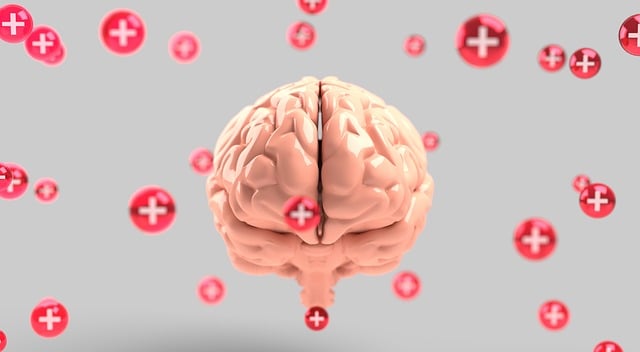Mindfulness meditation is a powerful tool for therapists in Colorado Springs, offering stress reduction, emotional regulation, and improved patient outcomes. Creating peaceful environments, integrating breath awareness exercises, guided imagery, and mental health education enhances client experiences. Overcoming challenges through consistent practice and peer support improves self-awareness and well-being. Tailored mindfulness techniques in therapy sessions foster present-moment awareness, leading to more effective Colorado Springs therapy experiences.
“Unwind, focus, and transform with Mindfulness Meditation—a powerful tool for therapists in Colorado Springs. This comprehensive guide offers a structured approach for clinicians looking to integrate mindfulness into their practice. From establishing a calming environment to guiding clients through various meditation techniques, we explore essential strategies. Learn how to address common challenges and enhance therapeutic outcomes. Discover best practices for incorporating mindfulness into therapy sessions, fostering a deeper connection with your clients.”
- Understanding Mindfulness Meditation: A Foundation for Therapists
- Setting the Scene: Creating an Ideal Environment for Practice
- Techniques and Tools: Guiding Clients Through Meditation
- Common Challenges and How to Overcome Them
- Integrating Mindfulness into Therapy Sessions: Best Practices
Understanding Mindfulness Meditation: A Foundation for Therapists

Mindfulness meditation is a powerful tool that therapists and clinicians can incorporate into their practice to enhance self-awareness and improve patient outcomes. At its core, mindfulness involves bringing one’s attention to the present moment, acknowledging and accepting thoughts and feelings as they arise, without judgment. This simple yet profound practice has been shown to reduce stress, anxiety, and depression, while also fostering better emotional regulation and positive thinking.
For therapists in Colorado Springs or any clinical setting, understanding mindfulness meditation offers a solid foundation for helping clients navigate their inner worlds. By integrating self-awareness exercises into therapy sessions, practitioners can guide individuals toward conflict resolution techniques that promote peace of mind and overall well-being. Such an approach not only benefits the therapist-client relationship but also empowers clients to manage stress and cultivate resilience in their daily lives.
Setting the Scene: Creating an Ideal Environment for Practice

Creating a peaceful and supportive environment is essential for an effective mindfulness meditation practice, especially for therapists and clinicians in Colorado Springs looking to enhance their well-being. The space should be a sanctuary where one can disconnect from external distractions and fully immerse themselves in the present moment. Consider transforming your practice area into a serene oasis by incorporating soft lighting, natural elements like plants or water features, and comfortable seating that encourages relaxation. A quiet, clutter-free setting allows for better focus and deepens the meditative experience, enabling professionals to return to their work with renewed empathy and improved coping skills development.
In this tranquil atmosphere, therapists can establish a routine that integrates mindfulness into their daily lives. By creating an ideal environment, practitioners are better equipped to manage their moods and maintain a balanced mindset, which is vital for providing compassionate therapy services in Colorado Springs. This dedicated space serves as a reminder to prioritize self-care, ensuring professionals can show up fully present and engaged with their clients, fostering deeper connections and more effective treatment outcomes.
Techniques and Tools: Guiding Clients Through Meditation

Guiding clients through mindfulness meditation requires a blend of skilled facilitation and practical tools. As a Colorado Springs therapy professional, therapists and clinicians can employ various techniques to enhance their clients’ meditation experiences. One effective approach is to start with simple breath awareness exercises, encouraging clients to focus on the sensation of inhalation and exhalation. This foundation helps individuals cultivate present-moment awareness, a cornerstone of mindfulness.
Additionally, incorporating visual aids or guided imagery can deepen the meditative state. Therapists might suggest clients visualize a peaceful scene or use body scans to enhance self-awareness. These tools are valuable for clients new to meditation, fostering a sense of comfort and control. Moreover, integrating mental health education programs designed with a focus on mindfulness can empower clients to understand and apply these practices in their daily lives, potentially boosting confidence in managing stress and improving overall well-being.
Common Challenges and How to Overcome Them

Many individuals seeking mindfulness meditation practice face common challenges that can hinder their progress and success. One significant hurdle is maintaining consistency; a regular practice is crucial for reaping the benefits of mindfulness, but busy schedules or distractions can easily derail even the most dedicated practitioners. To overcome this, set realistic goals and find a time in your day—whether it’s early morning or before bed—that you can dedicate to meditation without interruptions.
Another challenge lies in staying motivated. Mindfulness is an emotional healing process that requires patience and persistence. The practice may feel tedious or unrewarding at times, especially for those dealing with depression prevention. To combat this, remember the long-term benefits and visualize the positive impact mindfulness will have on your overall well-being. Consider joining a Colorado Springs therapy group for therapists-clinicians, where you can gain support from peers and access professional guidance tailored to your needs, making your journey towards a mindful lifestyle more accessible and enjoyable.
Integrating Mindfulness into Therapy Sessions: Best Practices

Incorporating mindfulness meditation into therapy sessions offers a powerful approach to enhancing Colorado Springs therapy for therapists and clinicians. This ancient practice has gained prominence in modern mental health awareness, providing a unique way to support clients’ self-esteem improvement and overall well-being. By integrating mindfulness, therapists can create a safe and supportive environment, encouraging present-moment awareness. During sessions, therapists may guide clients through simple breathing exercises or body scans to help them connect with their senses and emotions without judgment.
Best practices involve tailoring the meditation practice to each client’s needs and preferences. Some may benefit from silent meditation, while others might prefer guided visualizations or mindful movement. Therapists should also ensure open communication strategies, allowing clients to express any discomfort or challenges during the process. Regularly incorporating mindfulness into therapy not only improves clients’ ability to manage stress but also fosters a deeper understanding of themselves, leading to more meaningful and effective Colorado Springs therapy experiences.
Mindfulness meditation, a powerful tool within the therapeutic realm, offers profound benefits for both therapists and their clients. By integrating practices outlined in this guide, therapists in Colorado Springs can enhance their skills and provide effective support. From creating optimal environments to overcoming challenges, each step contributes to a transformative experience. Embracing these techniques allows therapists to guide clients towards improved mental well-being, making mindfulness meditation a valuable asset in the therapeutic journey.














